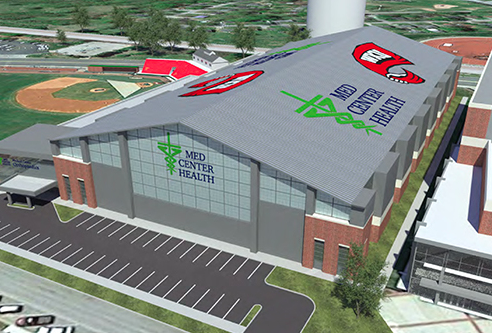
News
Medical providers, WKU divided on sports complex deal
Critics continue to challenge a partnership between Western Kentucky University and The Medical Center to build a new ... Read more

Critics continue to challenge a partnership between Western Kentucky University and The Medical Center to build a new ... Read more
A project to build a new sports medicine complex on Western Kentucky University’s campus continued to be met ... Read more